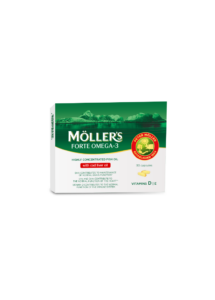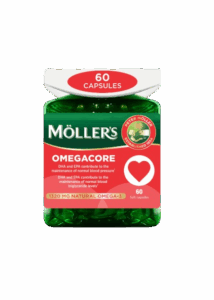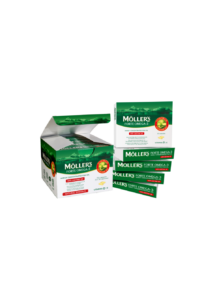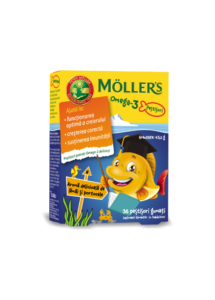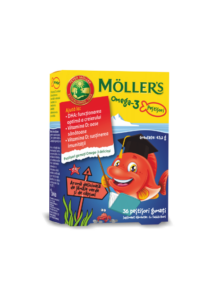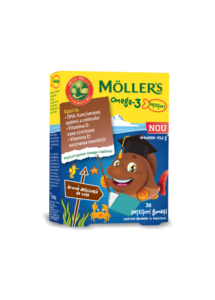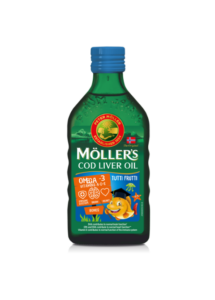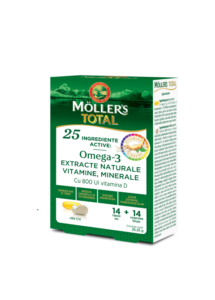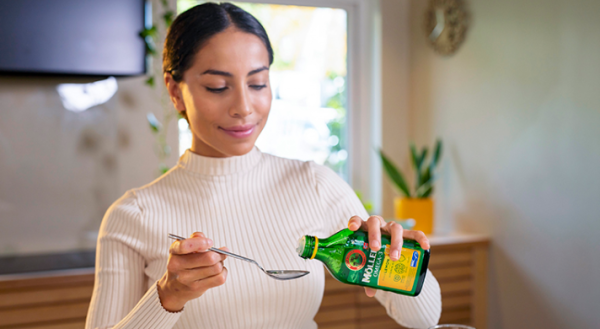Jeste li znali da omega-3 masne kiseline pozitivno utječu na razvoj mozga i vida vaše bebe tijekom dojenja?
Home » Zašto su omega-3 masne kiseline važan za dojilje i bebe?

Kao novopečeni roditelj, osjećaj odgovornosti za novi život može biti iznimno stresan. Sasvim je normalno brinuti se hoćete li nešto učiniti pogrešno.
Zašto beba toliko plače? Kako ju uspavati? Razvija li se pravilno? To su pitanja koja si postavlja svaki roditelj. Ipak, imajte na umu da sve najčešće dobro prođe te da bebe u pravilu rastu zdrave.
Srećom, većina ljudi ne mora brinuti o tome kako hraniti svoju bebu. Priroda je već osigurala optimalnu hranu za novorođenče – majčino mlijeko.
Nutritivni sastav majčina mlijeka ovisi o prehrani majke, stoga je vrlo važno voditi računa o tome što jedete tijekom dojenja.
Vaša prehrana trebala bi biti uravnotežena te osigurati dovoljno energije za proizvodnju mlijeka. Treba sadržavati hranjive tvari potrebne i vama i vašoj bebi tijekom dojenja. Prehrambene preporuke za dojilje gotovo su identične onima za opću populaciju, uz nekoliko iznimaka.
Posebnu pozornost tijekom dojenja trebate posvetiti unosu omega-3 masnih kiselina. Omega-3 sadrži masnu kiselinu DHA koja doprinosi optimalnom razvoju mozga i očiju. Mozak i oči intenzivno se razvijaju tijekom prve godine djetetova života pa je ključno osigurati dovoljan unos ove važne masne kiseline.
Najbolji izvor omega-3 masnih kiselina su masne vrste ribe, no nije lako svakodnevno konzumirati dovoljne količine. Jednostavan način osiguranja potrebne količine omega-3 jest redovito uzimanje ulja jetre bakalara. Möller’s ulje jetre bakalara također sadrži vitamin D, koji zdravstvene institucije preporučuju bebama koje doje.
Roditeljstvo je čudesno iskustvo, ali često donosi nove brige. Prisjetite se da se većina stvari oko kojih brinete nikada ne dogodi. Najvažnije je postupati razumno i pružiti svom djetetu mnogo ljubavi.
What is good health?
Do you have a good lifestyle?
Lifestyle simply means the way in which you live. Health and lifestyle go hand in hand. You might feel you have a good lifestyle if you are physically active, eat healthily and generally experience a sense of wellbeing. Conversely, if you want good health you should also have a good lifestyle.
Physical activity is the major contributor to a good lifestyle, but diet, drugs, stress, sleep and social conditions are also play an important role. Being able to use the body properly to avoid injury also affects lifestyle. Physical activity can also prevent depression and help you to recover more quickly from mental illness, both of which obviously affect your lifestyle.
Diet can be a difficult topic for many. Perhaps you eat too much or too little or maybe you find it hard to know what foods to combine to have a balanced diet. It’s also important to eat food that contains important vitamins, minerals and dietary fibre, omega-3 and antioxidants. On top of all this, you also need to get enough energy, protein and the correct fatty acids. The requirement for these nutrients changes throughout your life. When you are older you also have different requirements than children and younger adults. Women also have different requirements than men. Pregnant and breastfeeding mothers also have special requirements.
When you get older, you lose muscle mass and your body requires less energy and therefore less food. You may lead a less active life than you did before, which is why you require less food. However, your need for minerals, vitamins and other nutrients remains the same. Of course, there are plenty of healthy and active older people, but when you reach 70 to 80 years of age, it’s easier to become ill, especially during flu season.
Some steps you can take to improve your lifestyle and health are to:
- eat a healthy and varied diet
- stay active
- watch your weight
- avoid too much alcohol and don’t smoke
- get enough sleep
- think positive
- practise good hygiene
What is good quality of life?
The World Health Organisation (WHO) defines quality of life as a state where the individual can realise their potential, cope with normal stressful situations, work in a rewarding and positive way, and be able to contribute to others and society.
Quality of life is a wide and somewhat diffuse concept that includes joy in, and a desire for, life. These are values that are rather felt than measured, which in turn are based on personal environment and choices. Quality of life doesn’t necessarily depend on being healthy or sick. It’s the moments between worries, sorrows, problems and ailments that matter. For example, if you have a chronic illness, a feeling of mastery can be important when talking about quality of life.
To sum up, quality of life is a combination of health, lifestyle, networks and social support. It’s about experiencing joy, meaning in life, satisfaction, security and a sense of belonging, as well as being able to use your strengths. It’s also about feeling interest in life, coping with everyday situations and a being committed to something or someone. If you have good quality of life, you will be able to cope better with the inevitable stressful situations in life.
Naši proizvodi
MÖLLER'S FORTE OMEGA 30 kapsule
MÖLLER'S OMEGACORE
MÖLLER'S FORTE OMEGA 150 kapsule
MÖLLER'S OMEGA 3 RIBICE s okusom NARANČE I LIMUNA
MÖLLER'S OMEGA 3 RIBICE s okusom JAGODE
MÖLLER'S OMEGA 3 RIBICE s okusom COLE
MÖLLER'S OMEGA 3 ULJE JETRE BAKALARA s okusom TUTTI FRUTTI
MÖLLER'S OMEGA 3 ULJE JETRE BAKALARA s okusom LIMUNA
MÖLLER'S TOTAL
Saznajte više
Zašto Möller’s? Pouzdan i kvalitetan izvor omega-3 iz Norveške
imunitet omega-3
Dobro zdravlje, stil života i kvaliteta života – što to zapravo znači?
Ulje jetre bakalara ZDRAVO STARENJE
Ulje jetre bakalara i vaš imunološki sustav
imunološki sustav Ulje jetre bakalara
Pronađite inspiraciju na našem Instagramu
This error message is only visible to WordPress admins
Error: Access Token is not valid or has expired. Feed will not update.
